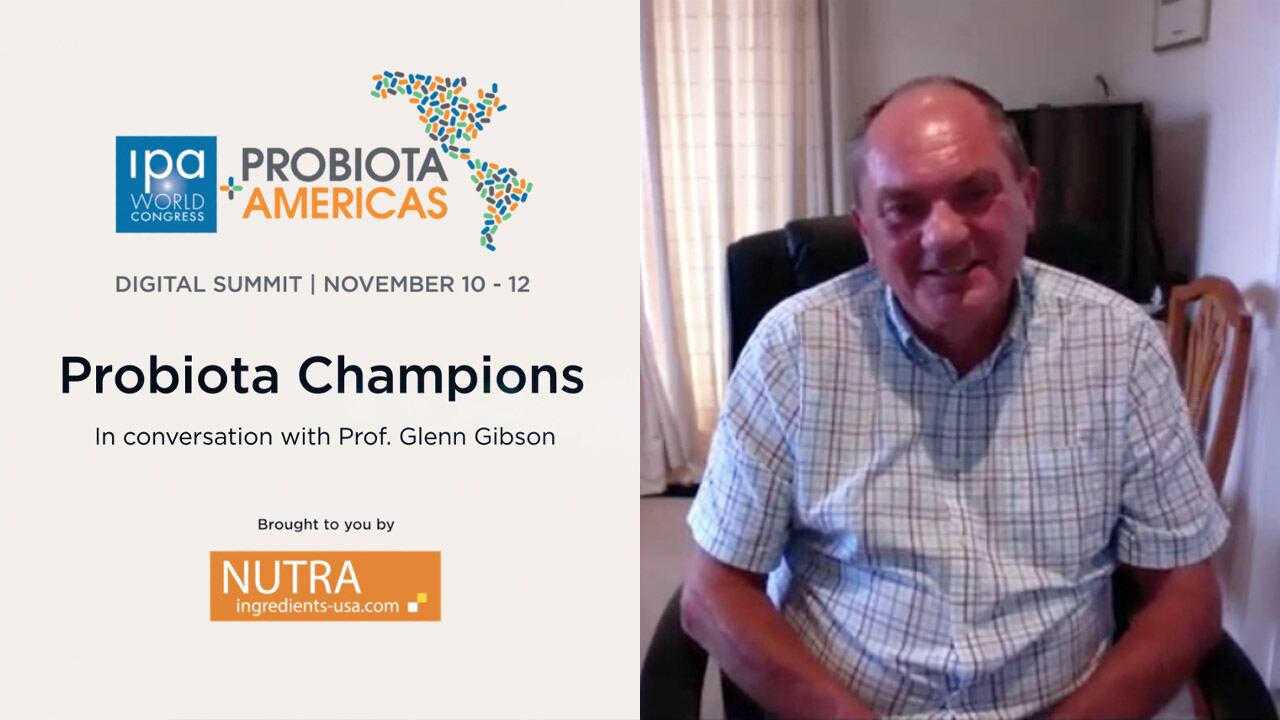Prof Gibson is Professor of Food Microbiology and Head of Food Microbial Sciences at the University of Reading in England. In 1995 he co-coined the term ‘prebiotic’ with Marcel Roberfroid, and he then led the update to the definition published in 2017 by an expert panel convened by the International Scientific Association for Probiotics and Prebiotics (ISAPP).
According to the updated definition, a prebiotic is: “A substrate that is selectively utilized by host microorganisms conferring a health benefit”.
When asked how many of the ingredients calling themselves prebiotics were supported by the appropriate science, Prof Gibson said, “not many”.
Speaking to NutraIngredients-USA for its recent Probiota Americas Probiota Champions video series, Prof Gibson added: “Two stick out: That’s galactooligosaccharides and fructooligosaccharides, which is also inulin.
“With ISAPP, we thought that [the original definition] was too restrictive from the point of view that it’s not all Bifidobacteria and Lactobacilli. They can do several good things, but they can also do positive things that other microbes can do, so we really need to think about Faecelibacteria, Propionibacteria, Christensenella, and so on. But also look at other ecosystems, not just the gut. So, the urogenital tract, and the skin, and because of that we felt we needed to relax the definition. Make it more user-friendly.
“Funnily enough, when we looked at it as a panel, we’d seen that since 1995 there were about 16 different definitions of prebiotic. That’s more than one every second year, which is a bit daft. So, we thought, what do we do about this? Another definition, of course!
“But it’s one that pulls them all together, and is a little bit more simplistic, but does not miss any of the developments that these 16 had contributed to. I hope this is the last one.”
And so, what do ingredients need to show to be considered ‘prebiotic’?
“I would say to people who want to call a particular ingredient a prebiotic, you need to show that in vivo evidence, and preferably that should be reproducible in different labs as well, and obviously peer-review published.
“You wouldn’t want to rule things out and say FOS and GOS, is that it? No, it isn’t, but I do think they do need the same level of rigorous scientific attention that FOS and GOS have enjoyed.”
Prebiotic vs parabiotic
And despite co-coining the term ‘prebiotic’ with Marcel Roberfroid, Prof Gibson is still not convinced it was the right term.
“Marcel came up with prebiotic and I came up with parabiotic, because in the 90s M*A*S*H, the American TV program set in Korea, was about paramedics. Paramedics would help medics. And so I thought (because everyone likes M*A*S*H) a parabiotic is something that helps a biotic. But Marcel got the casting vote and we went with prebiotic, but I still say I was right.”
To watch the full interview, please click below.



